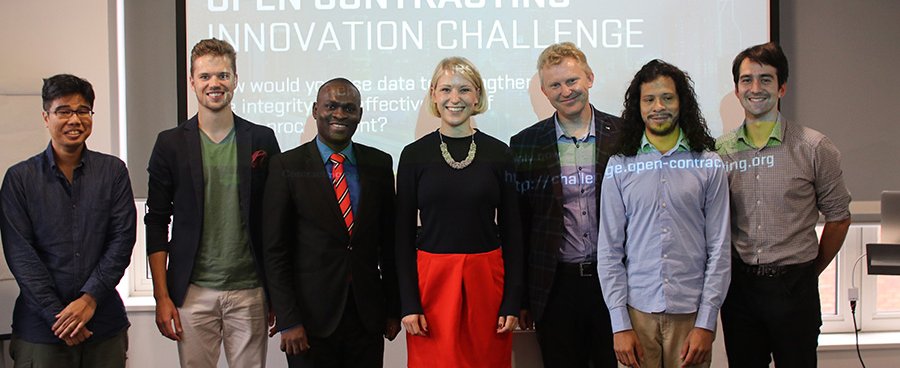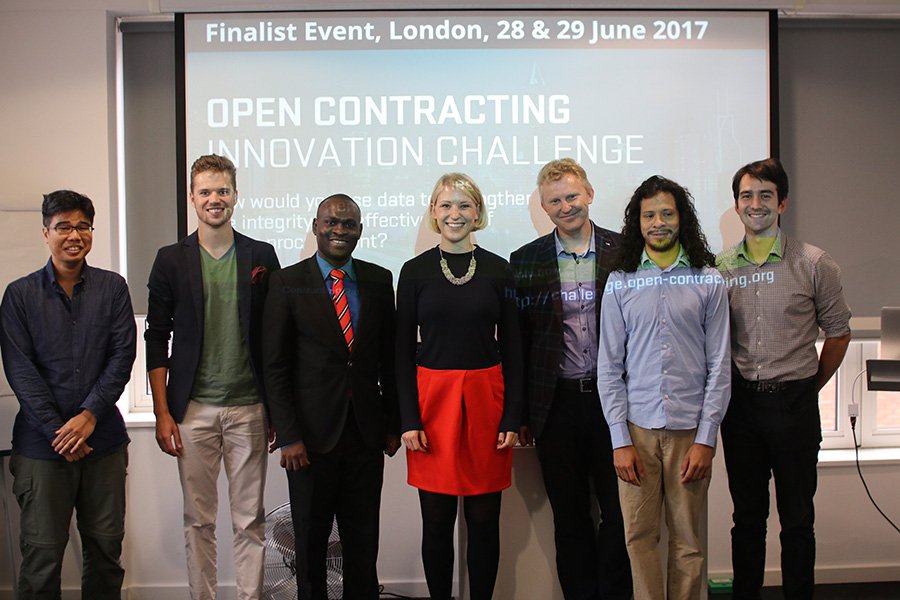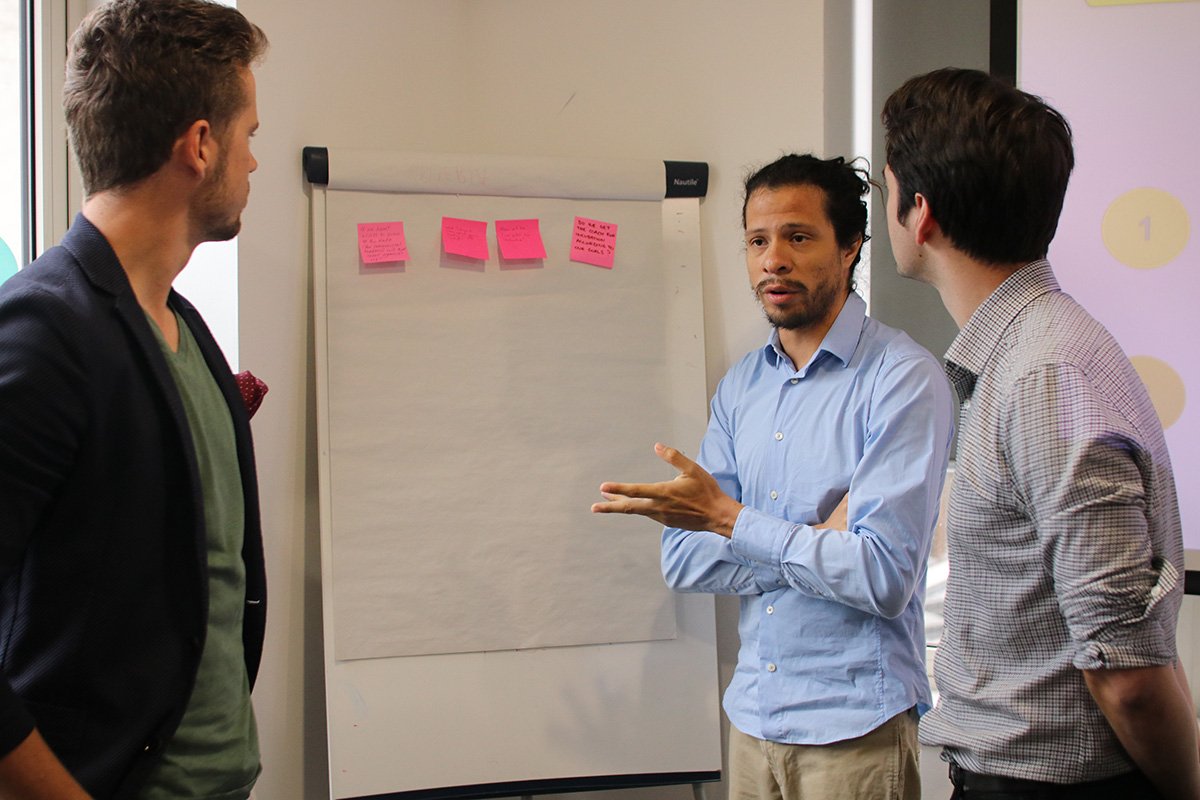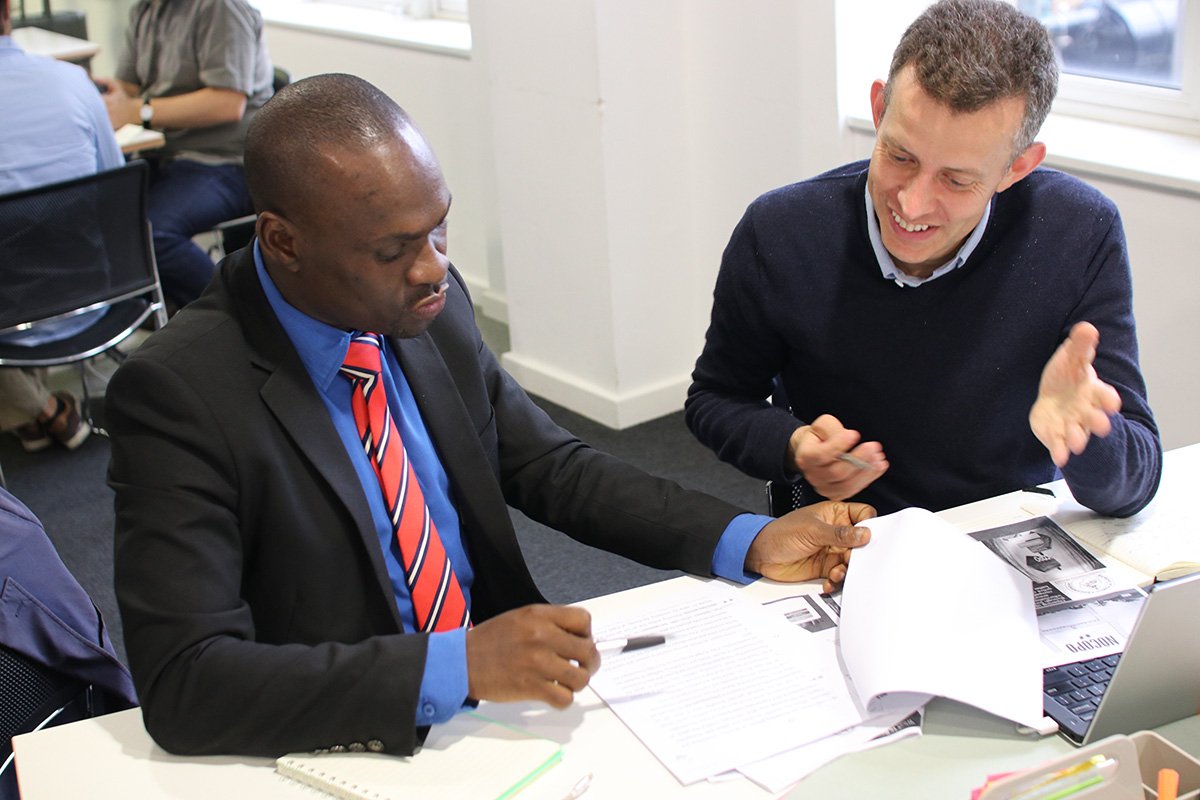
On the 28 and 29 June, the ODI hosted finalists from Malaysia to Mexico to receive and kick off the incubation phase of the Open Contracting Innovation Challenge. Tom Hunter, Innovation Consultant at the ODI, talks about what he learnt from spending time with these innovative startups from around the world.

At the start of 2017, the ODI and the Open Contracting Partnership (OCP) designed and ran the Open Contracting Innovation Challenge, a competition rewarding innovators around the world, whose ideas improve the way governments buy goods and services. The grand prize of $30,000 will be awarded in September.
After receiving 88 applications from over 40 countries, the challenge’s six finalists (and the winner of the government prize) were brought together in London for two days to kick off the three-month incubation phase. These included projects from as far flung places as Malaysia where the Sinar Project automates the search for conflicts of interest, to Mexico, where Contratobook automatically detects bids from fraudulent or blacklisted companies.
Our two days included a combination of group sessions and one-to one sessions with specialists. Past winners of Nesta and ODI’s Open Data Challenge Series also gave participants invaluable advice on how to manage resource during the incubation phase – not an easy feat with competing projects, clients, and priorities.
Why face-to-face?
At the ODI, we realise that even in a digital, interconnected world you can never replace the value of face-to-face contact to build relationships, a network, and really get to the heart of a problem. It’s why we insist on bringing open data leaders togetherin countries around the world. And it’s why bringing our finalists together in person made so much sense. It’s also this logic that led us to organise meetups in Mexico, South Africa, and Ukraine to attract finalists from across the globe.
The two days concluded with finalists sharing their goals for incubation, and what they hope to be able to pitch to judges in September. They also collaborated with the help of experts in the room, and expressed publicly to create accountability.

So, what did we learn from our finalist event?
First, we learnt that tailored individual sessions are key for this type of event. When environments, projects and the state of the open data ecosystem differ so much from country to country, people need advice that is tailored to their needs.
Secondly, there is value in and of itself in bringing these kinds of innovators together, helping the finalists to feel like they’re not alone, and providing a huge boost and inspiration to all. We know that innovators get as much from discussing informally with one another as they do from receiving advice from experts.
Challenges can also be run in a spirit of collaboration, not just of competition.
Thirdly, that challenges can also be run in a spirit of collaboration, not just of competition. We were initially uncertain how much participants would be willing to share, but in practice found a willingness to openly discuss the problems they were facing and share potential solutions. In fact, this is a characteristic we could push even further in our next iteration. In the words of one of our finalists: “Whilst this is a competition, we are all fundamentally working on the same goals and should be collaborating on our problems.”

One aspect we can improve is the diversity of our cohort. On the one hand, we were delighted to see great applications coming from countries across the world, with five different continents represented. But on the other hand, all of the representatives present in London were men. To some degree, this reflects the field, still dominated by men, but we know there are fantastic teams led by women doing great work on this problem (OpenHeroines for example).
We haven't done enough to reach out to them and encourage them to apply. We’re working on ways to make this more balanced for future iterations, for example by ensuring the whole process is gender decoded, ensuring the open call is advertised in places accessible to a wide ranges of audiences, and fast tracking certain applications, for example from disabled candidates/applicants.
What next?
With all the advice now taken on board, our finalists have now returned to their respective countries (and continents) to develop their project before pitching their final product or service on 15 September. During this period, they’ll receive mentorship and more specialist advice from great minds in the field of open data and open contracting.
All that’s left to say is: “good luck, buena suerte, Щасти, and semoga berjaya” to all our finalists!